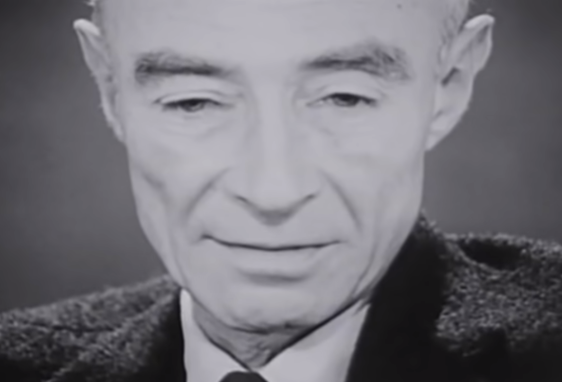
Who was J. Robert Oppenheimer?
As a government history junky and an avid political history blogger, there are few figures as fascinating and influential as J. Robert Oppenheimer. His name may not be widely known outside academic circles or among enthusiasts of nuclear science, but his impact on the course of history is immeasurable. In this blog post, we embark on a journey to uncover the life and achievements of this extraordinary man who played a pivotal role in shaping the modern world.
Early Life and Education:
Born on April 22, 1904, in New York City, Oppenheimer grew up in a wealthy family with a passion for education. His father, Julius Oppenheimer, was a German immigrant who had made a fortune in textile import-export business. From an early age, Oppenheimer displayed an insatiable curiosity and a remarkable aptitude for learning, which led him to excel in his studies.
After completing his undergraduate studies in chemistry at Harvard University, Oppenheimer pursued a Ph.D. in physics at the University of Göttingen in Germany. It was during this time that he encountered the works of some of the greatest scientific minds, such as Niels Bohr and Werner Heisenberg, who would profoundly influence his thinking and shape his future endeavors.
Scientific Contributions and the Manhattan Project:
Oppenheimer’s journey into the realm of theoretical physics brought him to the University of California, Berkeley, where he became a professor and embarked on a series of groundbreaking research projects. His work in quantum mechanics and quantum electrodynamics earned him widespread recognition and solidified his reputation as one of the leading physicists of his time.
However, it was his involvement in the Manhattan Project during World War II that catapulted Oppenheimer to the forefront of international attention. Tasked with the development of the atomic bomb, he gathered the most brilliant scientific minds of the era in Los Alamos, New Mexico, where they worked tirelessly to unlock the secrets of atomic energy. Oppenheimer’s leadership and intellect were instrumental in the success of the project, leading to the creation of the world’s first atomic bomb.
Controversy and Fallout:
Despite his pivotal role in the development of nuclear weapons, Oppenheimer’s life took a tumultuous turn in the aftermath of World War II. The dropping of atomic bombs on Hiroshima and Nagasaki led to a collective reckoning on the destructive power of nuclear weapons. Oppenheimer, now burdened by the weight of his scientific achievements, became an advocate for international control of atomic energy.
However, his vocal opposition to the development of the hydrogen bomb and his association with left-leaning political groups during the McCarthy era in the United States raised suspicions of disloyalty. In 1954, Oppenheimer’s security clearance was revoked, marking a dark chapter in his life and tarnishing his reputation.
Legacy and Impact:
Despite the controversy surrounding him, J. Robert Oppenheimer left an indelible mark on the scientific and political landscape. His contributions to quantum physics and his pivotal role in the Manhattan Project are undeniably significant. Oppenheimer’s introspective nature and deep reflections on the implications of atomic weapons shaped his later years as he dedicated himself to promoting arms control and preventing the catastrophic consequences of nuclear warfare.
What this all means…
In the annals of history, J. Robert Oppenheimer emerges as a complex and multifaceted figure. A brilliant physicist, a charismatic leader, and a man deeply aware of the moral dilemmas of his time. His scientific achievements remain unparalleled, yet his controversial role in the development of nuclear weapons and subsequent fallout cast a shadow over his legacy. Nonetheless, Oppenheimer’s unwavering commitment to preventing the misuse of atomic


